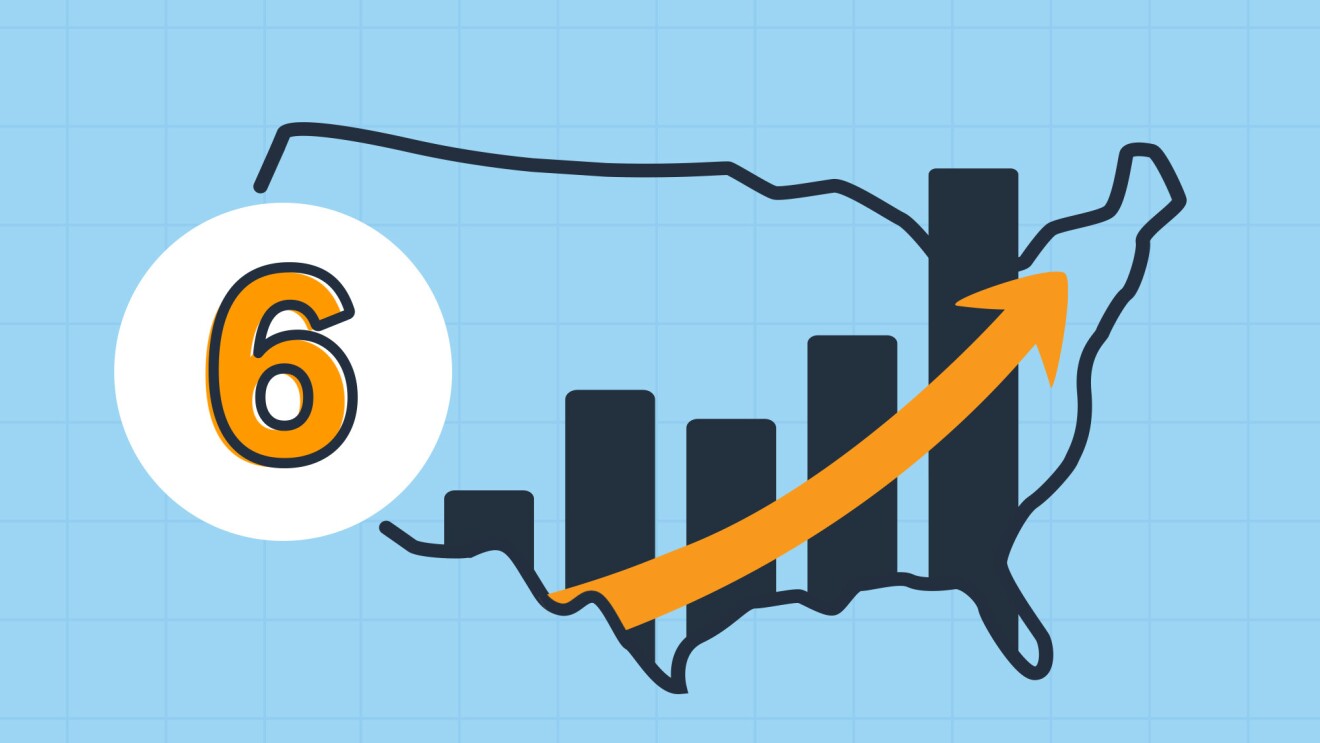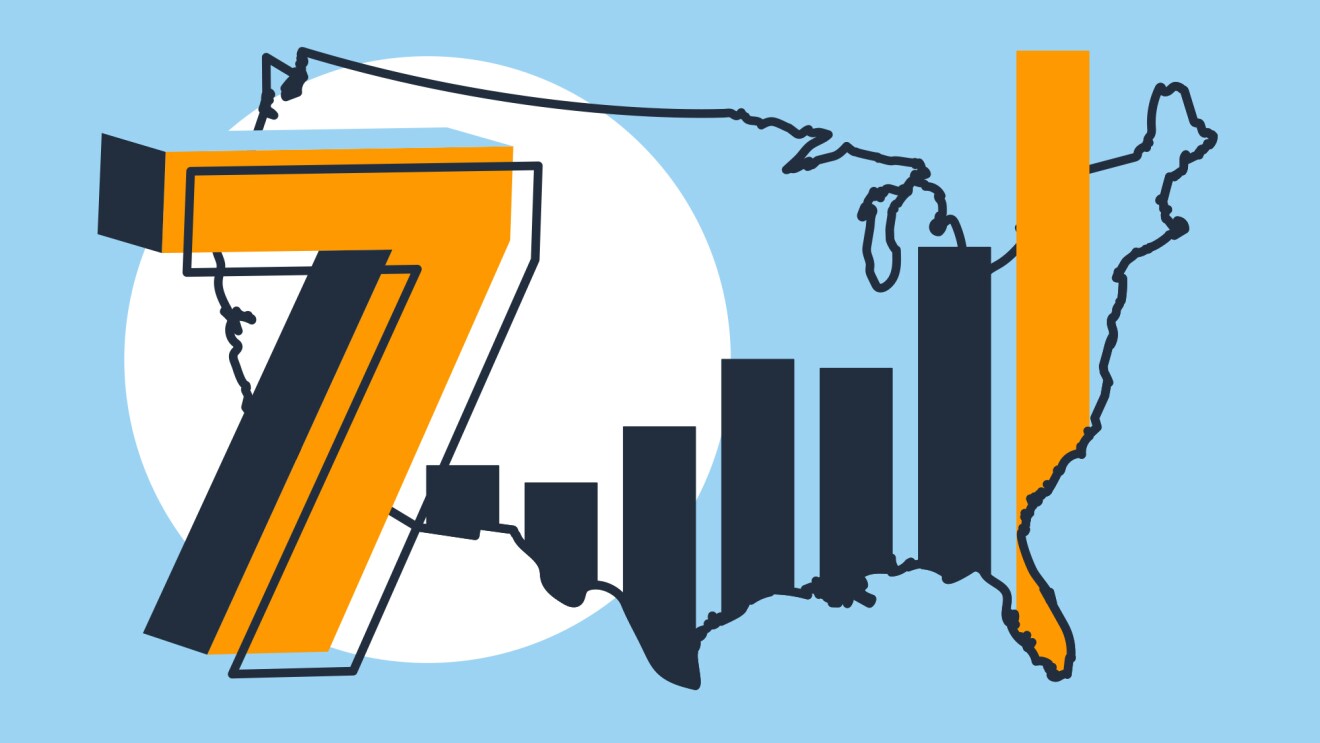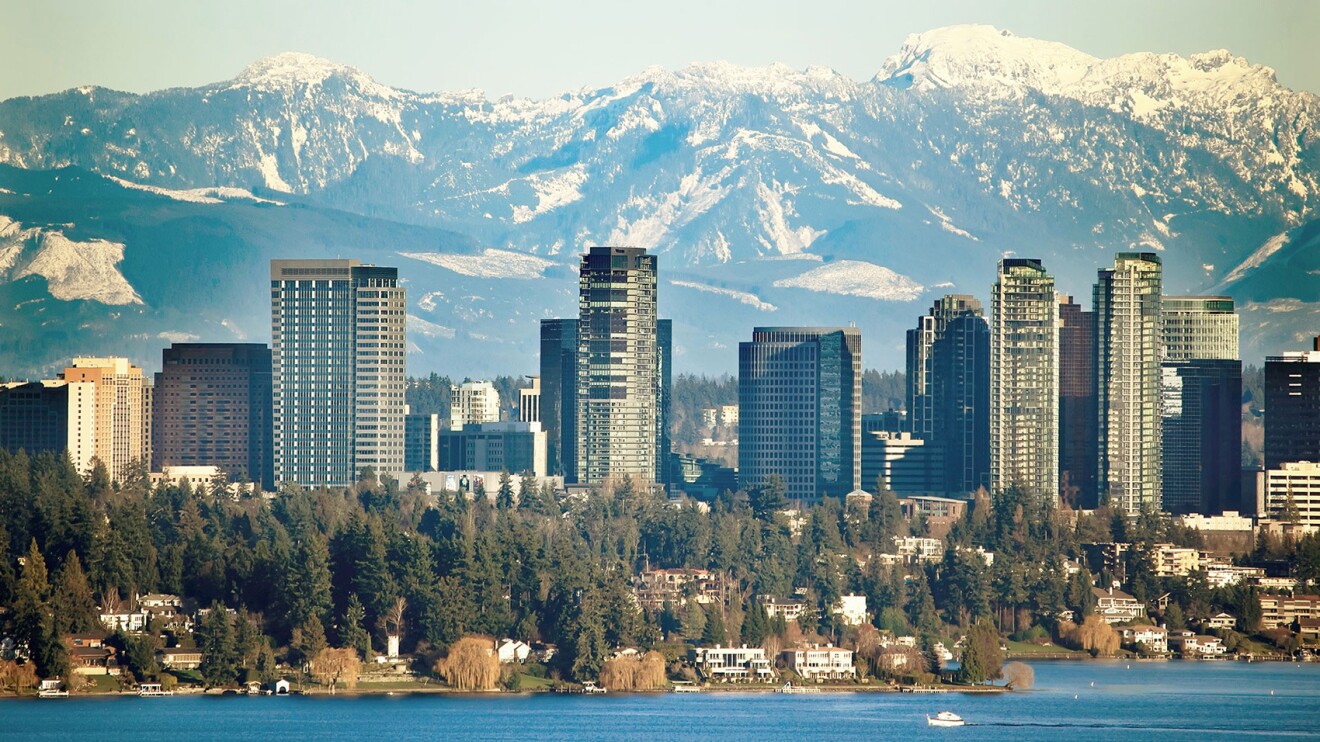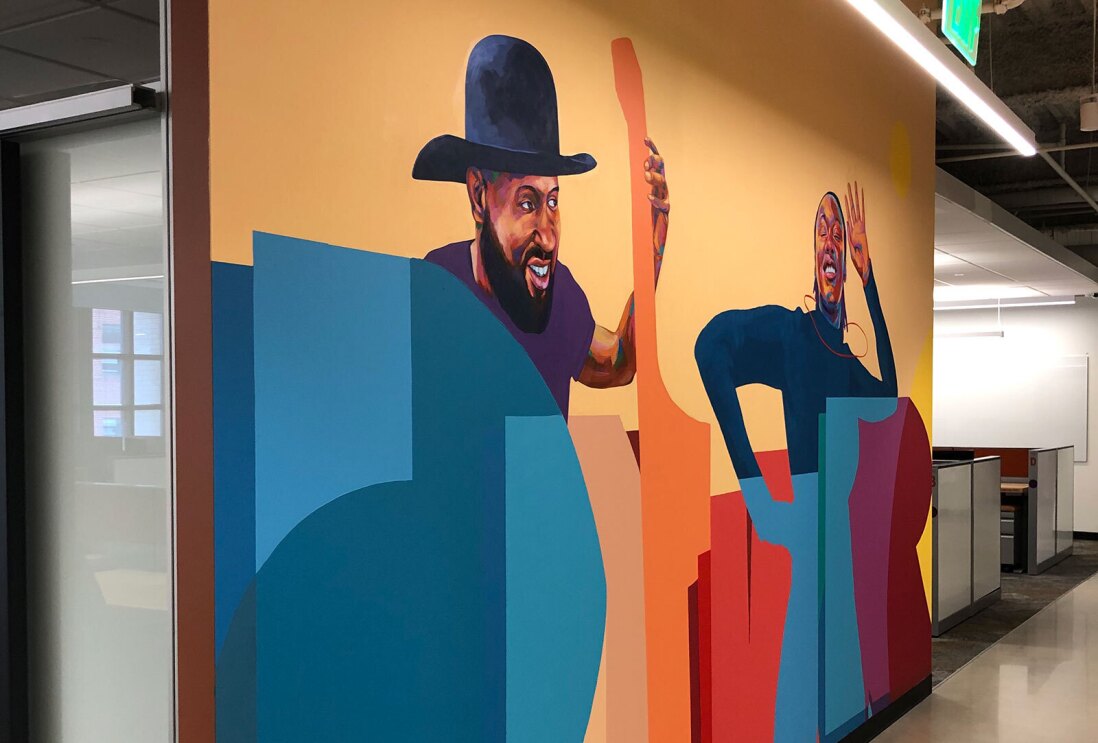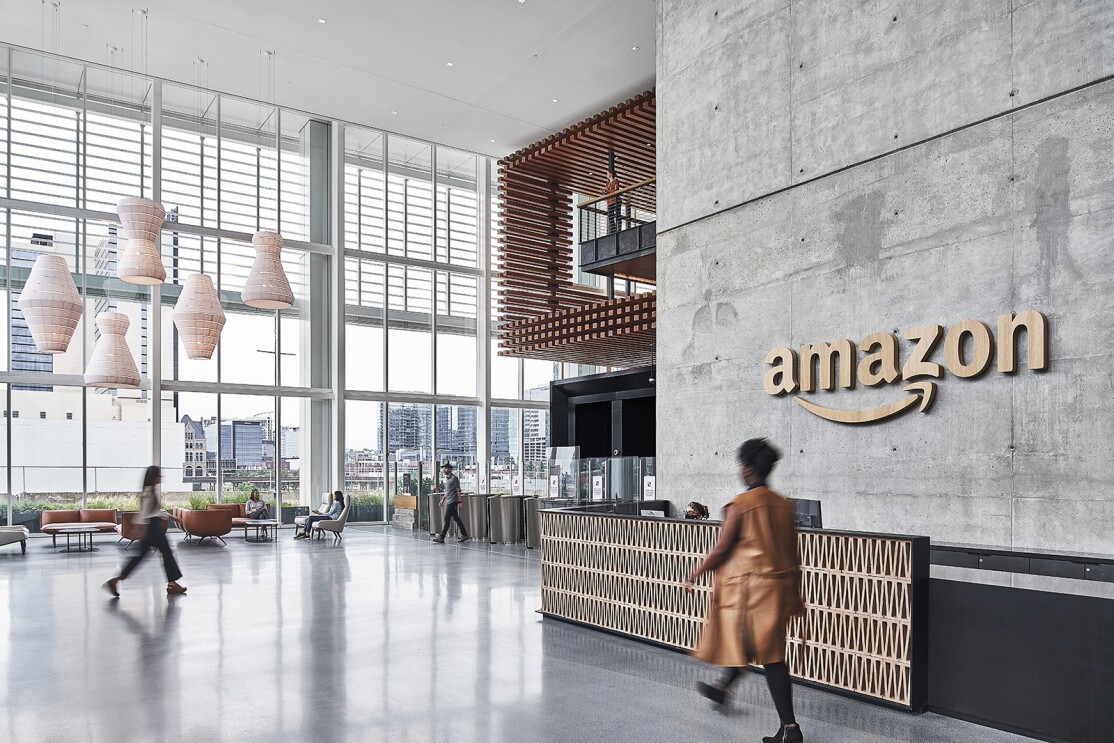Amazon has been a longtime advocate for increasing the federal minimum wage, and we’re proud to have been one of the first retailers to raise our starting wage to at least $15 an hour in 2018 for all U.S. employees and today well over half of all Amazon front-line employees in the U.S. earn more than $15 an hour. They have told us that earning at least $15 an hour has improved their lives—helping them to purchase cars, pay for home repairs and college tuition, and save. The benefits of a major corporation like Amazon increasing their starting wage showed a peripheral impact as well. A recent study found that when we raised our starting wage to $15 an hour in 2018 it had a positive impact on other wages in local labor markets where Amazon operates.
In support of our ongoing call for policy makers to increase the federal minimum wage—which has been stuck at $7.25 since 2009—Amazon and global market research firm Ipsos are today releasing a new comprehensive study, which polled more than 6,000 Americans on their knowledge of and opinions on the current U.S. federal minimum wage.
The findings are unambiguous: A clear majority of Americans (80%) say that the current federal minimum wage of $7.25 an hour is too low, and two in three Americans who have an opinion on the issue support increasing the minimum wage to $15 an hour. While unsurprising that many would want higher wages, our research found that, more often than not, it is the need instead of desire, that’s driving the push for a higher minimum wage. For many Americans across the country, this increase in pay will have a dramatic effect on their everyday life and their access to resources and opportunities to build a better future.
“If I had a higher wage, it would be easier for me to plan for the future for me and my child,” said survey respondent Pauljanae, a 25-year-old, from Washington. “I’d be able to save more money, not only for my child but also for myself.”
“So many people like me are working service jobs, working essential jobs that are needed every day,” said survey respondent Jaxon, a 31-year-old from Georgia. “Fifteen dollars an hour would allow us to pay our rent and still be able to save, our kids wouldn’t go to school and get picked on because of their hand-me-down clothes.”
The study’s findings demonstrate an urgent need to increase the federal minimum wage and should serve as a catalyst for policymakers to take responsibility and help Americans struggling under the weight of a $7.25 federal minimum wage. However, the expectations do not fall solely on policymakers. Study respondents also say that businesses have a clear role to play, and they suggest the top action (44%) businesses should take is to set their own hourly minimum wage at $15 an hour.
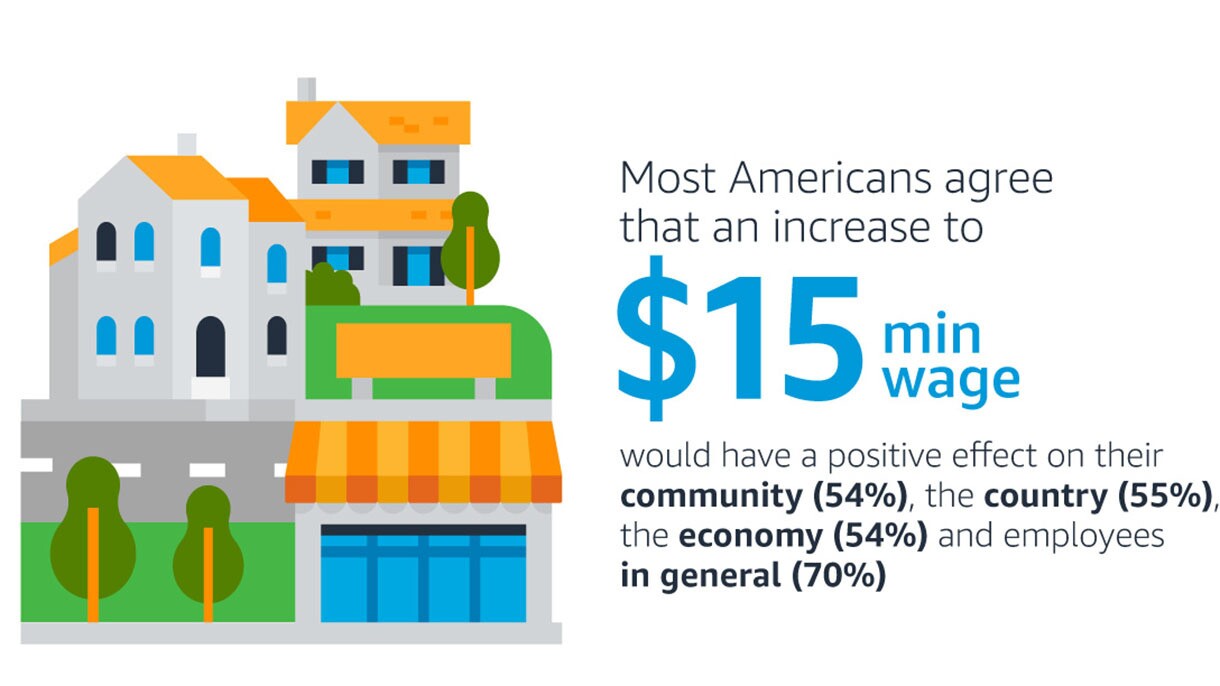
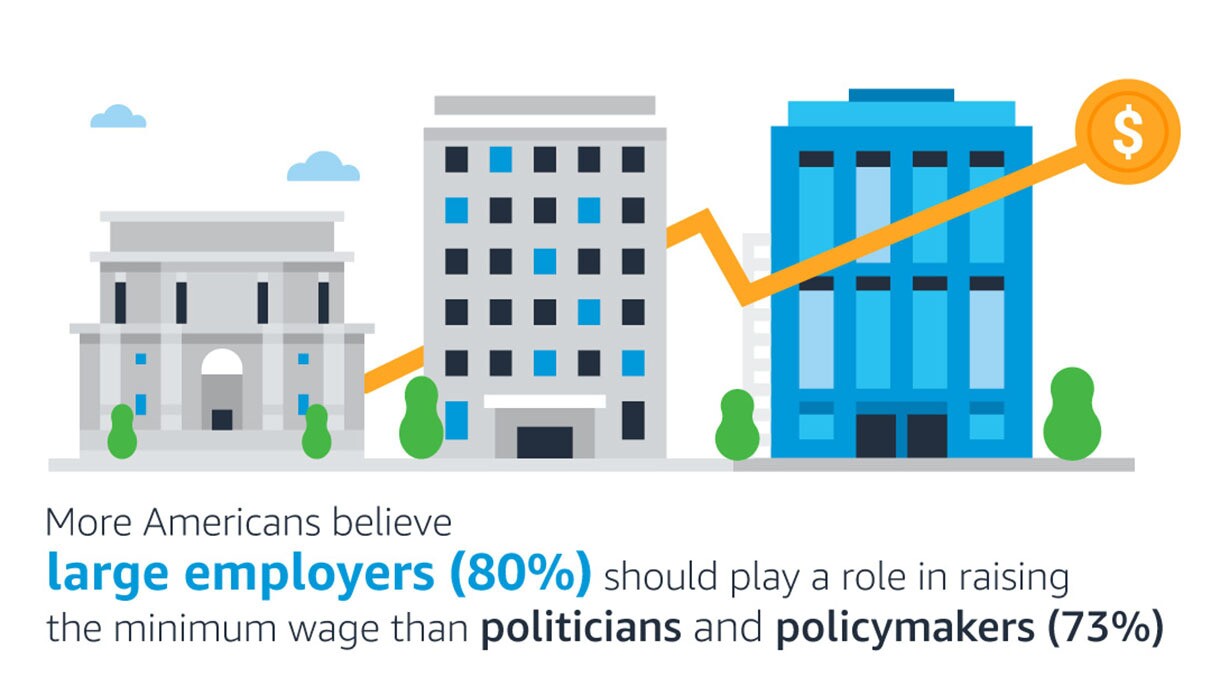
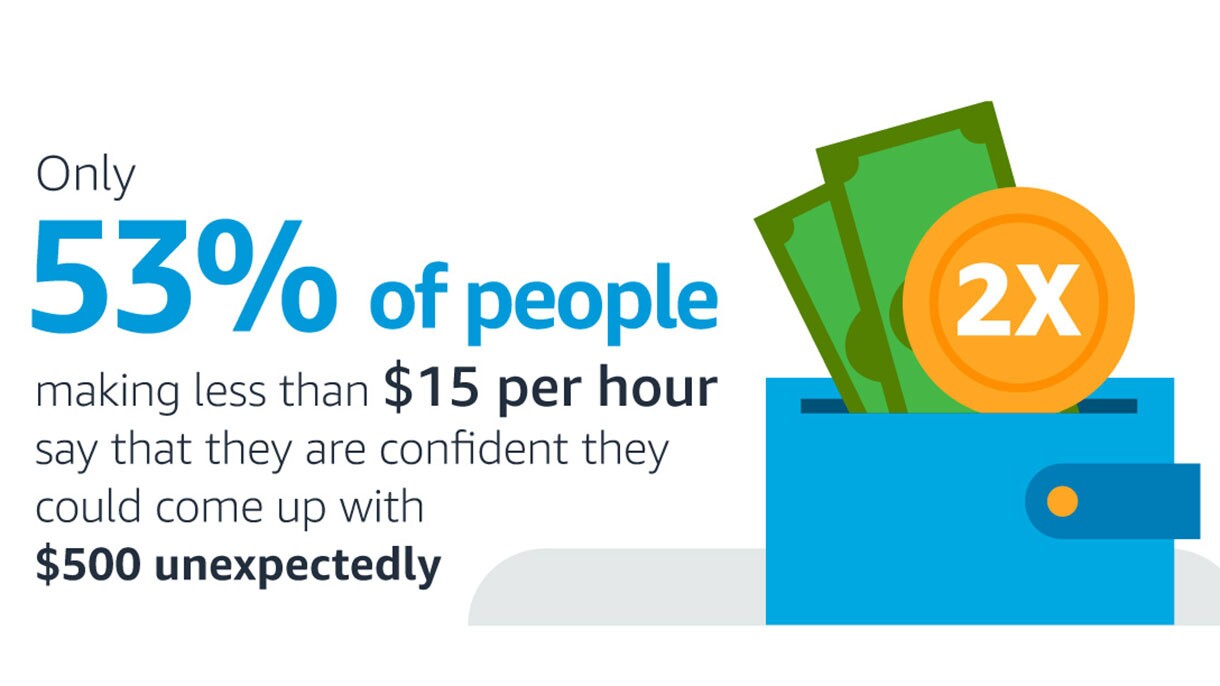
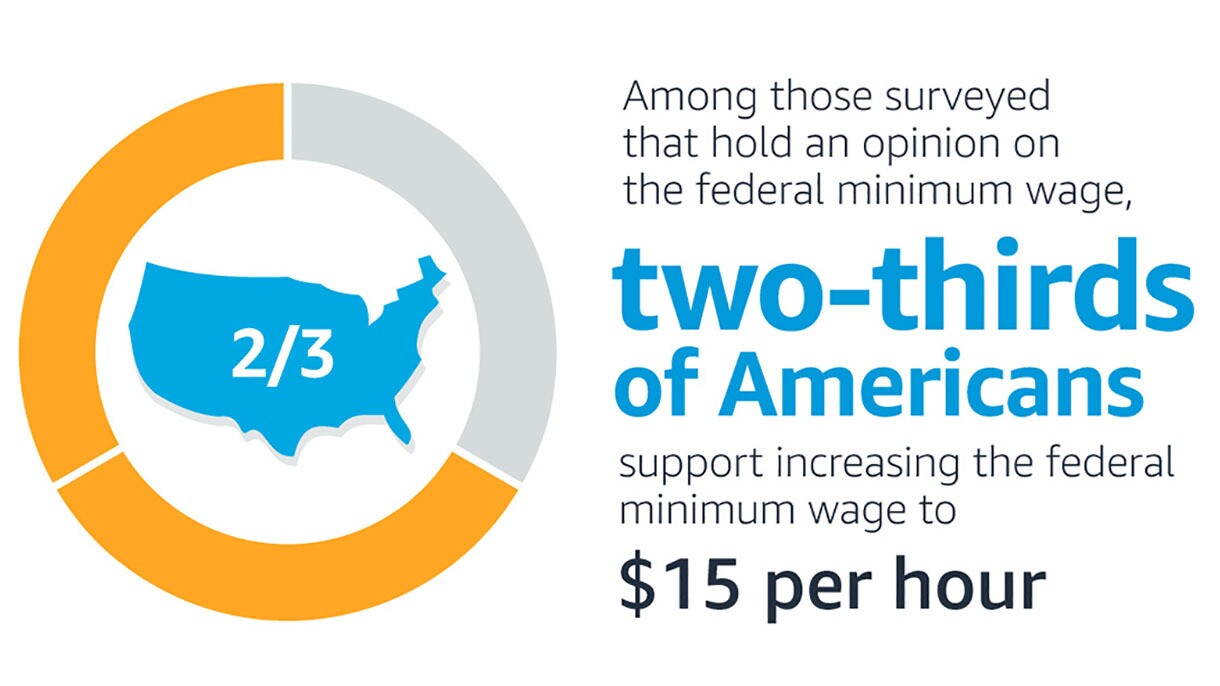
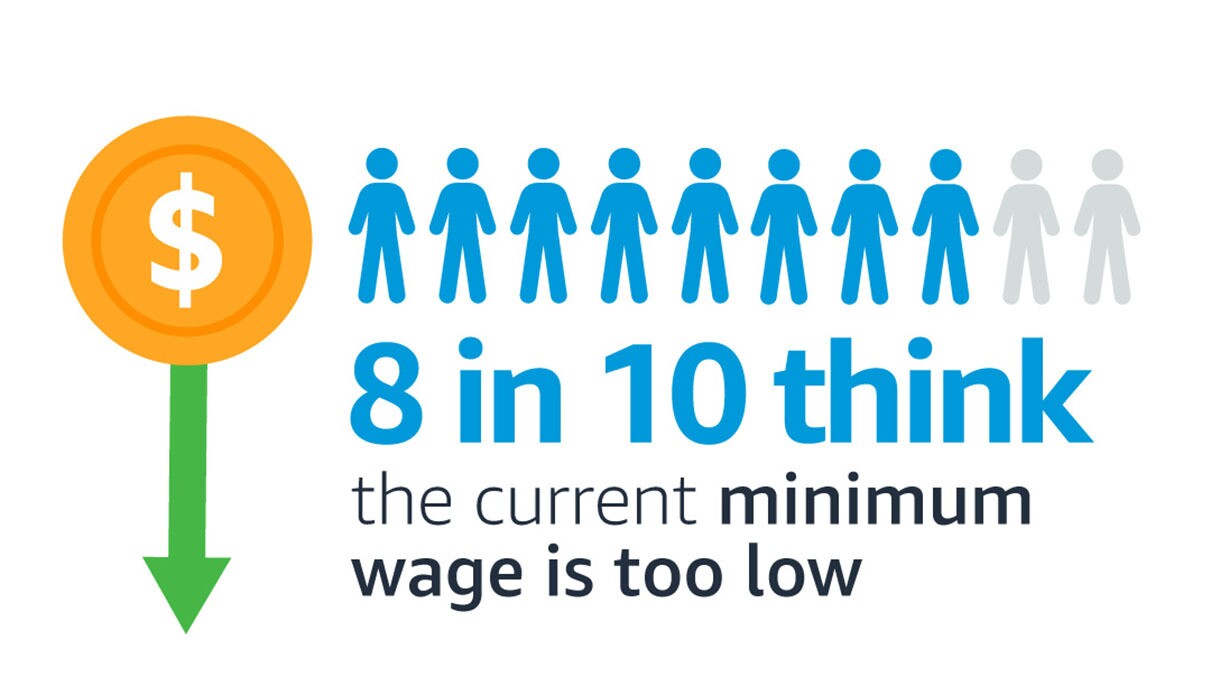
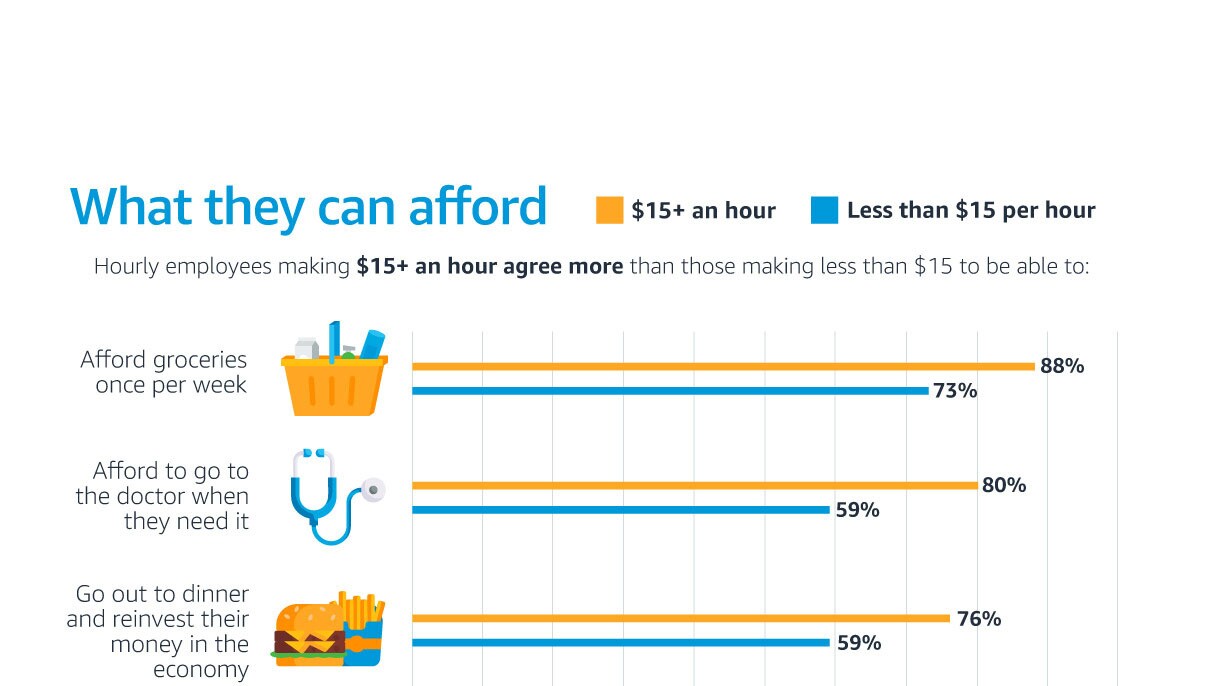
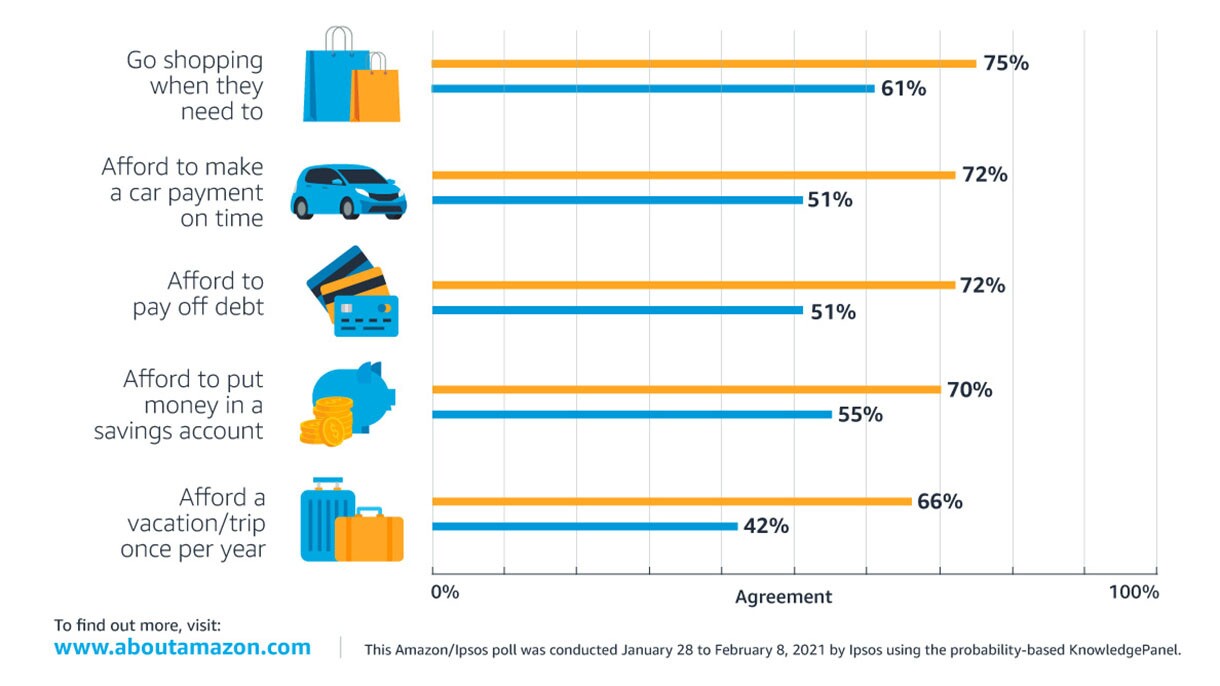
When large businesses act, the impact is profound
In our work with Ipsos, we wanted to capture the voices of Americans who are struggling to make ends meet when working for less than $15 an hour. These are not Amazon employees, but people from a range of backgrounds and locations in the U.S. Their stories are a powerful reminder that the current federal minimum wage is causing economic hardship nationwide and leaving people behind.
While we’re pleased to see other companies increase their starting wage, we encourage every major corporation to meet us and pay all their employees at least $15 an hour. The findings of this study—and the voices of the people who’d most be affected by this change—pose just one question to large corporations: What’s preventing them from taking action now?
“I used to work at a restaurant but they cut my hours because of COVID so I couldn’t pay the bills,” said Remington McCarthy, an Amazon employee in DuPont, Washington. “The consistent pay [I have now] doesn’t leave me wondering if I can pay the bills this month, and with the pay I make at Amazon I can take my daughter on skiing trips. I love spending time with her.”
Providing America’s employees with a fair wage is more important than ever, especially as the COVID-19 pandemic continues to create new pressures and exacerbate existing inequities for many families and communities. An increase in the minimum wage will put money into the pockets of the people who need it most. Also, as the findings show, a majority of respondents believe it will be good for employees, the community, the country, and the economy—a true win-win for all.
We reiterate our call on Congress to increase the federal minimum wage, and we encourage other large companies to join us in increasing their starting wage to at least $15 an hour for all employees. By doing so, we can help provide more opportunity to American employees that need it the most.
Trending news and stories
- ‘Young Sherlock’ premieres March 4: How to stream the Guy Ritchie series on Prime Video
- Alexa+ can now answer your Ring doorbell and talk to visitors
- ‘Beast Games’ Season 2 is coming to Prime Video—See the new trailer
- How Amazon Pharmacy has helped customers save more than $100 million on prescription medications like GLP-1s and insulin

